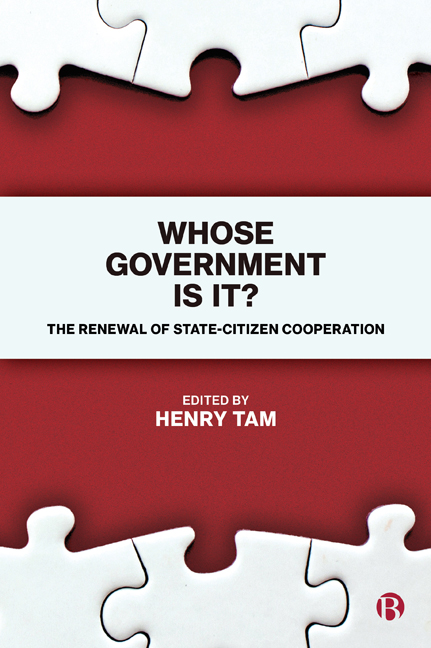8 - Community Action and Civic Dialogue
Published online by Cambridge University Press: 27 April 2022
Summary
Political commentators often portray democracy as a pathway for establishing an electoral majority for the purpose of governing. Used in this instrumental sense, democracy revolves around the conduct of political elites in finding a winning coalition for a programme of social change. But this is a terribly narrow and perverse interpretation of democracy's purpose. For in its widest sense, democracy is an ideal, a process and also an idea in action (Runciman, 2014). The rhythms and pulse of democracy can be found in the everyday life of each and every community. Democracy is not confined to the high arts of statecraft but instead it infuses the common and everyday life between us all.
Under this more rounded portrait, democracy involves people learning how to disagree with each other so that they can live together as equals without resorting to violence or competitive strategies of domination. In this fuller sense, democracy involves an open, emergent and deliberative style, as much as it requires formal and institutional foundations for governing. Open discussion and questioning are therefore central to the legitimacy of day-to-day democratic conduct (Quirk, 2011). This generates a corresponding need for political institutions themselves to adapt to open-ended change. This interlinked character of societal and governmental progress was powerfully described over 200 years ago by Thomas Jefferson (1816):
I am not an advocate for frequent changes in laws and constitutions, but laws and institutions must go hand in hand with the progress of the human mind. As that becomes more developed, more enlightened, as new discoveries are made, new truths discovered and manners and opinions change, with the change of circumstances, institutions must advance also to keep pace with the times. We might as well require a man to wear still the coat which fitted him when a boy as a civilised society to remain ever under the regimen of their barbarous ancestors.
While the nation state is usually thought of as the source and site of democratic and constitutional processes, the origin of our actual democratic practice is usually found in the locality in which we live. For it is at the local level where we encounter our first problems of collective action, and where we first learn how to deliberate together with others about what should be done to solve them.
- Type
- Chapter
- Information
- Whose Government Is It?The Renewal of State-Citizen Cooperation, pp. 127 - 142Publisher: Bristol University PressPrint publication year: 2019

